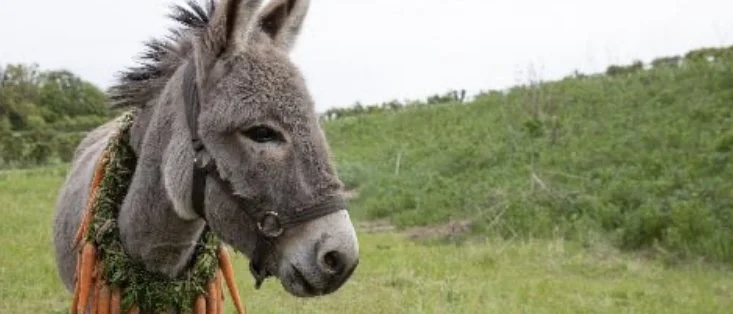Jerzy Skolimowski is a filmmaker that, in his five-decade career, has had his share of ups and downs. To me, he’ll always be the man who directed “Deep End,” “The Shout,” and “Moonlighting,” three flat-out masterpieces.
The 84-year-old has had a sort of career resurgence the last ten or so years, especially in France. If you read Cahiers du Cinema you would know how much they loved his recent fare like “Essential Killing,” “Four Nights With Anna,” and “11 Minutes.” So, it makes sense that Skolimowski would finally be welcomed back in Cannes competition with “EO”.
“EO” is a donkey movie, and an animal rights statement, that resulted in many walkouts last night at the DeBussy theatre. Those who stayed gave the film hefty applause during the end credits. I wasn’t one of them.
Imagining what the mindset of a donkey might feel like, Skolimowski is clearly influenced here by Robert Bresson’s far superior “Au Hazard Balthazar,” a film far more touching and depth-filled than this one. Much like the donkey in Bresson’s masterpiece, the mule in Skolimowski’s film goes from one owner to the next.
Starting off in a Polish circus, where he is abused by the owner, donkey is quickly shipped off to a petting zoo by animal rights activists. In fact, everywhere donkey goes, he’s working, doing a job.
Initially, the film’s imagination runs wild, with a visual brilliance that plays with coloured lenses and unique camera angles. The goal here is to follow the aninal, but to also entice the audience with trippy visuals that make the film look more cinematic.
Eventually, the it all runs out of steam, one can only follow a donkey for so long before questioning the reason for the dramatic ineptness. However, there is an amusing bit with donkey stumbling upon an amateur soccer team who decide to designate him as the team mascot.
And yet, as it is with most of these animal-driven tales, it’s a story of being born, working, and then dying. In a way, “EO” feels part of an unintended trilogy that started with the strikingly similar animal movies “Cow” and “Gunda.” Maybe if those films hadn’t been released before Skolimowski’s then maybe I would have been more inclined to invest my eyes and ears to his mise-en-scene. It just felt too similar to those films.
There were whispers around the corridors about this being the first major Palme d’Or contender of this 75th edition of Cannes. No, please no. “EO” is a trifle masquerading as something more substantial. Its message (“animal harm is bad”) is so on-the-nose and heavy-handed that even a first grader could figure it out. [C]






